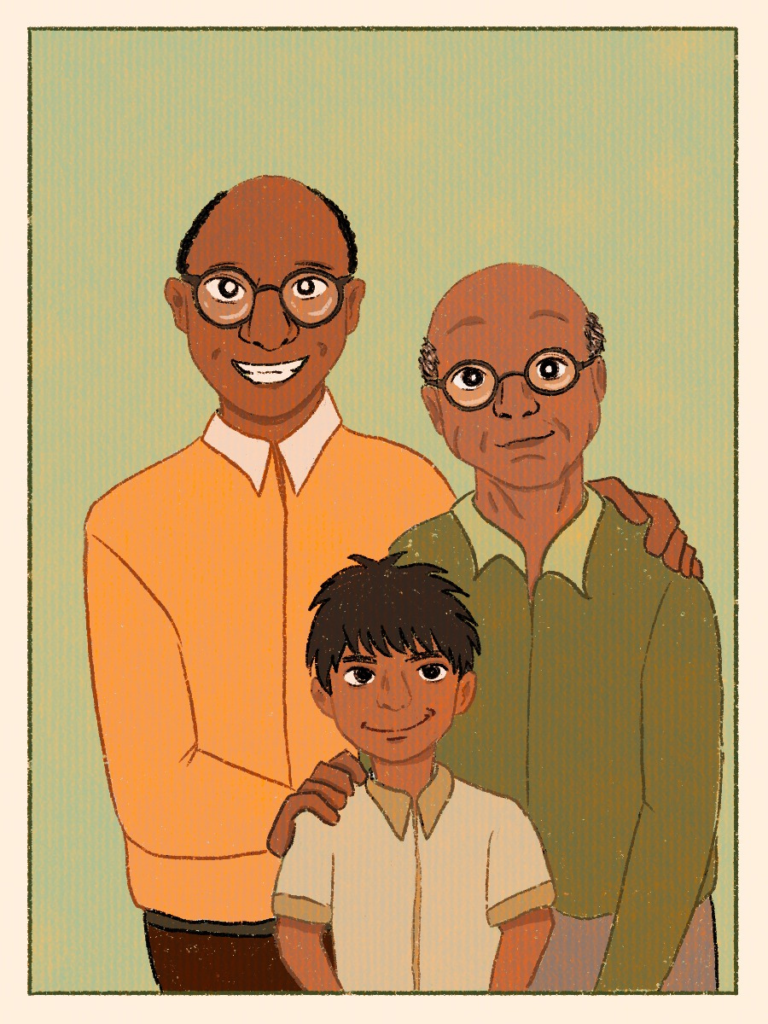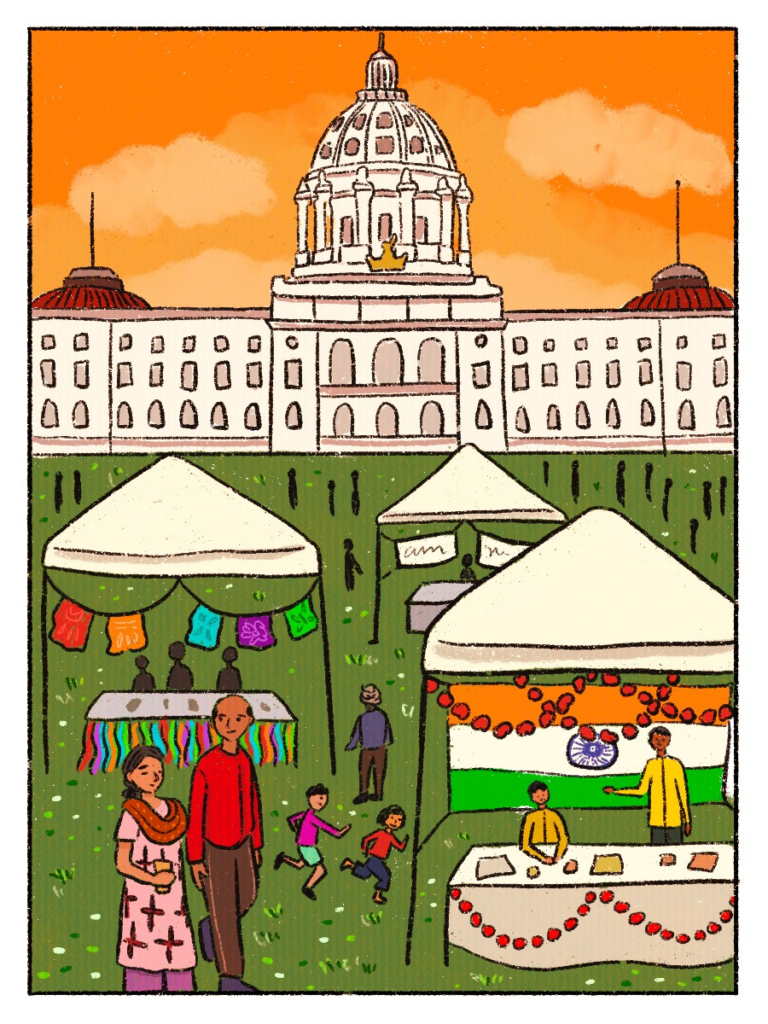“My sense of solidarity as an Asian Minnesotan deepened after seeing my Indian immigrant parents’ indifferent response to the 2014 protests in Ferguson following Michael Brown’s killing. I realized that they hadn’t considered how our own ancestral experiences as colonized people echoed present-day injustices in the United States and compelled us to act.”

“Knowing our long history in the United States was an important step in first awakening my sense of solidarity with people fighting racism and oppression. That history destroyed the myths I was told as a child about Asian Indians in America, stories in which we are expected to be perpetual foreigners and docile professionals seeking only upward economic mobility. I was inspired by the Bengali people who first arrived on America’s shores in the nineteenth century and found refuge in Black and Puerto Rican communities and the Punjabi emigres who–inspired by the early American labor movement–built momentum to end British colonial rule back home. I was angered by the 500 white workers who beat and expelled the entire South Asian population from Bellingham, Washington in 1907. In 1911, South Asians were deemed by the U.S. Immigration Commission to be “the least desirable race of immigrants thus far admitted” into the country. Our existence in this country has always been political, and that fuels my sense of urgency to achieve justice and liberation for those most marginalized in our society.
“I know my choices are to remain silent and invisible or actively engage and resist, and I choose resistance every day. This resistance can take many forms. It involves constant internalized work to understand how my personal, professional, and ancestral identities give me unique daily choices to create a more just, equitable Minnesota. If developing a liberatory consciousness is my goal, I must notice and name when I think or act in ways that perpetuate forms of oppression that permeate our relationships, our institutions, and our culture. Remaining curious and open with others is difficult in these polarized times, but it can be a simple act of resistance when doing the difficult work to build solidarity across lines of difference.”

“My hope is that Asian Minnesotan communities continue to build and use power in ways that benefit those most marginalized. While this work has been happening for decades, the pandemic and the 2020 uprisings for racial justice proved once again how powerful we as Asian Minnesotans can be in shifting hearts, minds, and institutions when working in solidarity at the intersection of multiple identities—in our own families, in our communities, and across the state. It gives me great pride to see how far we’ve come in the past ten years, and I’m committed to and optimistic about the work yet to come.”